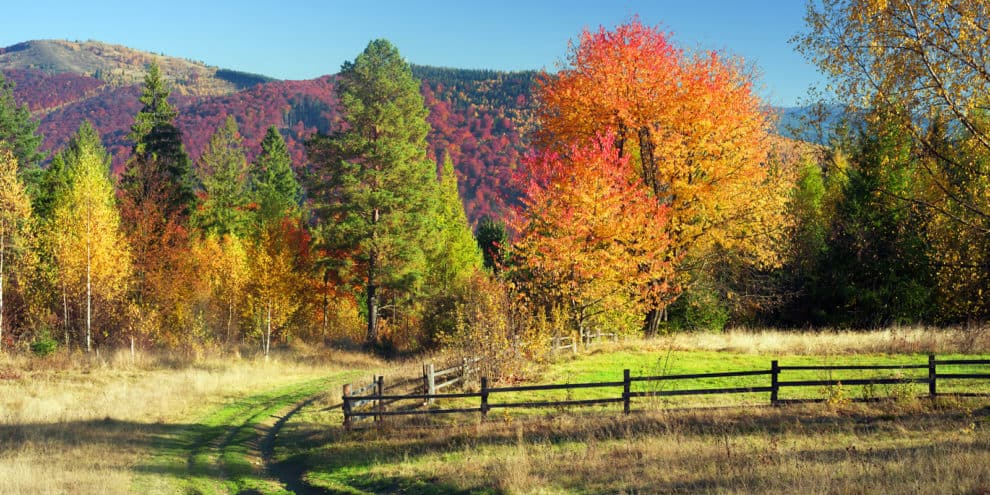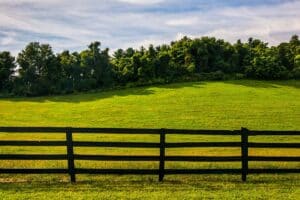Unless you buy land directly from a land owner, you’ll deal with real estate agents when you shop for rural land for sale.
There are two ways to shop for rural land (other than “buying direct”) and both involve real estate agents. One way is to “do-it-yourself” (DIY). Typically, a DIY shopper will comb the internet looking for deals, then contact the agent that represents the seller for more formation. As a result, DIY shoppers typically deal with many different agents. Let’s call these agents “Listing Agents”.
The other way to shop is to retain one agent to handle the shopping. This agent deals with all the other agents so you only deal with one agent. Let’s call these agents “Buyer Agents”.
Our experience is that either way works. But each have pros and cons. So before you start shopping, here are a few thoughts on working with real estate agents, along with some options you may have overlooked.
Not all agents are the same
Agents that specialize in rural land (Listing & Buyer) are a small part of the agents that sometimes deal in land. Fact is, most agents are residential or commercial specialists that occasionally work land. The best land specialists have been in practice for many years. They have acquired experience and specialized knowledge in areas such as timber, rural land appraising, rural land contracts, land management and wildlife management. They also have deep contacts with specialists like foresters, surveyors, road & pond builders, title & closing specialists, and wildlife biologists.
It’s important for buyers to understand that the agents they come into contact with will have a wide range of experience and specialized knowledge. This is even true among agents that specialize in rural land. Why? Because it’s not hard to get a real estate license. Some agents even specialize in land part time around their “day job”. Agents who specialize in residential or commercial real estate usually lack the specialized knowledge needed to help land buyers make good decisions. This is important to understand when your good decision depends on an agent’s experience and specialized knowledge.
DIY shopping
About 90% of the people that we sell land to are DIY shoppers. That is, they deal directly with Listing Agents and land owners. Our experience is that very few buyers have experience in buying land and usually lack specialized knowledge. And, they often work with unspecialized agents who lack it as well. Most ignore that Listing Agents are contractually obligated to represent the best interest of the seller. And, by law, do not owe the buyer any fiduciary duties and typically represent buyers as “Transaction Brokers”. As a result, people who shop DIY sometimes pay too much, take unnecessary risks, and may have avoidable regrets.
The successful DIY shoppers we know buy and sell on a regular basis. They have the experience and specialized knowledge needed to make good decisions. And, they often have long relationships with local Listing Agents that can give them an inside track on unadvertised properties.
Tips for working with Listing Agents
- Often a DIY shopper will use the tactic of blind-calling multiple Listing Agents (with no specific property in mind) in hopes that a suitable property will surface. We call this “hail Mary” shopping. It’s usually an ineffective way to shop unless the agent already knows and trusts the buyer. Otherwise the agent doesn’t know if the buyer is motivated or qualified. And they know the buyer has not bothered to do the homework needed to focus on something specific.
- DIY shoppers should know that some Listing Agents will push their listings first even though another property with another agent or a property “for-sale-by-owner” (FSBO) may be better suited. Why? If they sell their own listing, they get all the fee. If the Listing Agent sells a buyer someone else’s listing, they get half the fee (or risk no fee in the case of FSBO’s).
- Buyers who shop for land on the internet should also know that more than half the rural land market cannot be found on the internet. The “hidden” portion of the market (like an iceberg) are FSBO deals and properties only advertised on a local “multiple listing service” (MLS). These are marketplaces not covered by many Listing Agents.
- DIY shoppers should be aware that it’s common practice for some Listing Agents to advertise land they do not actually control with a written agreement with the owner. They usually have a non-exclusive “hand shake” agreement with the owner to pay them a fee “if” they bring a successful buyer. Here the risk to the buyer is that a property they fall in love with can be sold right out from under them by the owner or another agent. When considering a property, it’s good practice to verify that the Listing Agent has a written and exclusive contract with the owner.
- If a DIY buyer knows where they want to buy (for example, which county), dealing with a local Listing Agent can be good because they sometimes have the inside track on un-advertised buying opportunities. But, if a buyer is looking in a large area they’ll have to deal with several Listing Agents to cover the ground. This takes time and forces buyers to deal with multiple agents that may lack experience and specialized knowledge.
- Many land listings on the internet lack adequate maps and driving directions. Often, the only way a buyer can visit a property is to call the Listing Agent (who does this on purpose) and who often won’t have maps, they just “know where it is”. Without topo maps or aerial photos, a buyer lacks the basic tools needed to make good decisions. DIY buyers should have tools for creating location maps, GPS coordinates (NOTE: land does not have an “address” unless there is a house on it), topo maps, and aerial photos.
Shopping with a Buyer Agent
It’s important to understand that representing buyers requires a different set of skills and tools than representing sellers. Buyer Agents are legally bound to represent the best interest of the buyer. This is usually done through a Buyer Listing Agreement that establishes the agent’s fees and responsibilities.
Most real estate agents are Listing Agents and lack experience representing buyers. For example, Listing Agents must be good at using the internet to promote properties and find buyers. On the other hand, Buyer Agents must be good at finding sellers who often do not advertise on the internet. An experienced Buyer Agent may also list property, but they will have a proven record representing buyers. They will also have specialized tools to assist with finding sellers. In our experience, Buyer Agents help buyers see more properties, lower transaction costs, and lessen the risks taken.
Tips for working with Buyer Agents
- Experienced Buyer Agents work with clients using a variety of fee structures, such as flat-fee, per diem or percentage basis. Fee structures can also be a combination of the three. Complex projects may require up-front fees but these should be a credit against any fees earned.
- A Buyer Agent can save a buyer time by testing the suitability of any property ahead of time. For example, they can compare the asking price against comp sales, pre-inspect a property to verify it’s suitability for the intended use, assemble maps & aerial photos and probe seller motivation by interviewing the property owner or listing agent. Good Buyer Agents are good at “hot-washing” the character of a property, Listing Agents and owners. And, that’s what you call experience.
- An exclusive agreement with a Buyer Agent allows that agent to invest their time and money in your project. But there are variations on this that can work in certain situations, such as exclusive representation for a particular property only.
- By vetting Buyer Agents ahead of time buyers can be assure their agent possesses the required specialized knowledge and tools. If you like, contact us for a Buyer Agent interview form that has questions buyers can ask candidates.
- With the right tools a Buyer Agent can find property that most buyers would probably never see otherwise. That’s because, about 55% of the land market is “hidden” since it’s not advertised on the internet (many Buyer Agents only use the Internet to find deals). Listing Agents mostly advertise land though dozens of “land-only” web sites. This is the visible part of the market and all most buyers ever see. It takes specialized tools to find this “hidden” market. It’s good practice to talk with a candidate to be your Buyer Agent about the tools they will use to find the “hidden” sellers.
Deciding how to work with an agent is an exercise in honestly assessing your level of knowledge, contacts and experience with rural land. The best approach to working with an agent is to work with them in a way that compliments your level of experience and knowledge. The good news is, you have options!
This preceding article is an excerpt from Tom Brickman’s e-book, “Buying Rural Land: Tips and How-to’s”, a collection of well-written, quick reads to help you find a rural property you’ll love and simplify getting it done. Download the e-book and learn from a seasoned pro with 40 years of experience.
This content may not be used or reproduced in any manner whatsoever, in part or in whole, without written permission of LANDTHINK. Use of this content without permission is a violation of federal copyright law. The articles, posts, comments, opinions and information provided by LANDTHINK are for informational and research purposes only and DOES NOT substitute or coincide with the advice of an attorney, accountant, real estate broker or any other licensed real estate professional. LANDTHINK strongly advises visitors and readers to seek their own professional guidance and advice related to buying, investing in or selling real estate.










Add Comment